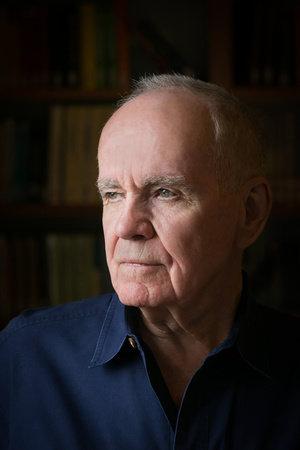
Photo Credit: Beowulf Sheehan
Famed novelist, screenwriter, and playwright Cormac McCarthy died June 13, 2023, at his home in Santa Fe, N.M. He was eighty-nine years old. His death was attributed to natural causes.
The reclusive and enigmatic writer had lived in Spain, Chicago, and El Paso before spending his final decades in New Mexico. He set many of his best-known stories in the Texas-Mexico borderlands.
McCarthy wrote at least a dozen novels, plus several screenplays and plays for the stage. But he is perhaps most widely known for his 2005 book No Country for Old Men, which became the roots for the Coen Brothers' violent, 2007 Academy Award-winning neo-Western movie, bearing the same title. At least three other novels, All the Pretty Horses, Blood Meridian, and The Road, are frequently mentioned as being some of McCarthy's best and most widely praised works.
All the Pretty Horses (1992) received a National Book Award and a National Book Critics Circle Award. It also became the opening book in McCarthy's Border Trilogy, which includes The Crossing (1994) and Cities of the Plain (1998). The Road won the 2007 Pulitzer Prize for Fiction. The New York Times, meanwhile, declared that Blood Meridian "may be the bloodiest book since the Iliad," to which McCarthy retorted: "There's no such thing as life without bloodshed." He indicated that he paid little attention to writers who did not "deal with issues of life and death" in their works.
Numerous literary critics have placed McCarthy alongside some of the world's greatest authors, ranging from Shakespeare and James Joyce to Herman Melville and William Faulkner. But McCarthy's dark, apocalyptic, and often brutal stories have also drawn detractors. And his writing style, including replacing commas with conjunctions and tossing in little-known words, has not been without controversy.
Meanwhile, labeling McCarthy as simply an "author of Westerns" is wrong, journalist Nick Hilden contended recently in Salon. "McCarthy was never a Western writer -- as so many have described him -- but rather a writer who occasionally wrote Westerns in exploring an expansive range of other literary spaces...His final two works [The Passenger and Stella Maris] settled conclusively that no genre could pin Cormac McCarthy down," Hilden wrote.
McCarthy was born in Rhode Island in 1933 and grew up in Knoxville, Tennessee. A college dropout and Air Force veteran, he lived in Spain and several other places before moving to El Paso in 1976. In the early 1980s, he became a writer in residence at the Santa Fe Institute (SFI), a New Mexico organization "dedicated to the study of complexity." Despite his reputation as someone who kept to himself and avoided talking about writers and writing, he remained involved in that scientific research group until his death.
According to an SFI news release, Cormac McCarthy "made SFI his second home, exchanging ideas with scientists and scholars and writing on his Olivetti manual typewriter. He wrote SFI’s Operating Principles and also became its Lifetime Trustee and Senior Fellow of the Institute. His last novels...delved into the ideas of mathematics, physics, and analytical themes he explored with his colleagues at SFI."
Cormac McCarthy's death likely will focus new spotlights on the Wittliff Collections at Texas State University in San Marcos. The Wittliff's Southwest Writers Collection includes "The Cormac McCarthy Papers," an extensive gathering of his published and unpublished works spanning 1964 to 2007. It also has "The Woolmer Collection of Cormac McCarthy," which spans 1969 to 2006. That collection documents the professional and personal friendship between McCarthy and New York bookseller, book collector, and bibliographer, J. Howard Woolmer.
Abha Eli Phoboo, the Santa Fe Institute's director of communications, told Lone Star Literary Life, "There will be no public funeral or memorial service."
